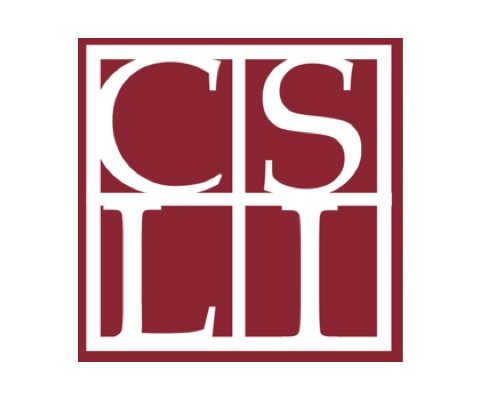Back to series


Questions and Answers From Children About God
Learn more in our Dawn Treader Magazine
Theodore: Good morning, Rita! How are you doing today?
Rita: Okay, I guess.
 Theo: That didn’t sound very convincing.
Theo: That didn’t sound very convincing.
Rita: Well, to tell you the truth, Theo, I haven’t been feeling very good about things lately—general dissatisfaction, I guess. And don’t—
Theo: Don’t what?
Rita: Don’t tell me how much better I’d feel if I’d just count my blessings and realize how much I have to be thankful for. I get tired of hearing it—it always makes me feel guilty, somehow. I don’t see what I have to be especially thankful for—I don’t have any great opportunities that are so much better than anyone else’s. And so since I don’t feel thankful, when people tell me that I ought to, that makes me feel rather guilty.
Theo: You should, if you’ll pardon me for saying so. How can you say you don’t have anything to be thankful for? Look at all the blessings that surround us here in the Western world today—unprecedented luxury and technological advancement, access to education and health care, good jobs, no famines or plagues or invasions that our military isn’t equipped to deal with, political and religious freedom, no artificial class barriers to making friends or following certain careers, every opportunity to enjoy cultural activities and entertainment—what don’t we have to be thankful for, Rita?
Rita: Oh, I know—I’m glad we have all those things, too. But they bring along their own troubles, don’t you think? And it’s not like we didn’t have to work to get them. People have labored for centuries to invent and discover new, better ways of living, and put into place better systems of government and increased civilization…
 Theo: Exactly. So we might be thankful to our predecessors, as well as to God, for all the benefits we enjoy.
Theo: Exactly. So we might be thankful to our predecessors, as well as to God, for all the benefits we enjoy.
Rita: Well, but I don’t like to feel as though I’m not earning them myself. I feel that if you make proper use of the education system we have, work hard to get a university degree and a good job, vote in elections and give money to the Red Cross and other organizations that send aid to less developed countries, you’ll be a good citizen. And if I achieve success by hard work, I think I deserve it.
Theo: So do most of us. But we don’t.
Rita: So, we don’t all have the right, as they say, to “life, liberty, and the pursuit of happiness”?
Theo: Not because of our own merits. What the eighteenth-century theorists on human liberty were referring to when they wrote of “rights” were those given to us, despite our lack of merit, by our Creator. “Endowed” is the word used by Thomas Jefferson in America’s Declaration of Independence, if I remember correctly, and a dower has the nature of a gift given to a family member, not something earned. We haven’t earned any of the rights and blessings we enjoy; we can’t say we deserve them, even if we think everyone should have them, and so we should be extremely grateful for them. And you really are, Rita, however much you try to deny it. Otherwise, you wouldn’t be concerned with properly using the blessings you enjoy to do good yourself. Thankfulness is really all about actions, not feelings. As C.S. Lewis wrote: “people are often worried … They cannot find any such feeling in themselves. What are they to do? The answer is the same as before. Act as if you did. Do not sit trying to manufacture feelings. Ask yourself … what would I do? When you have found the answer, go and do it”1
 Rita: Ye-es. But I’m still not sure I agree with you, Theo. After all, if I don’t have myself to thank for the blessings I enjoy, who do I have to thank? Who gave them to me, really?.
Rita: Ye-es. But I’m still not sure I agree with you, Theo. After all, if I don’t have myself to thank for the blessings I enjoy, who do I have to thank? Who gave them to me, really?.
Theo: God is the source of all blessings, whether we realize it or not. Think about it. As He is our Creator, Savior, and Father, we depend on Him for everything we have—every breath we take is only by His Will for us. The great things that people do are only because God has given them the ability and talents and opportunities and spiritual motivation to do them. There wouldn’t be much point in doing anything in this world if it wasn’t for our hope of eternal life, and we wouldn’t have that without Jesus. And we can’t do anything without Him, either. “Every faculty you have, your power of thinking or of moving your limbs from moment to moment, is given you by God. If you devoted every moment of your whole life exclusively to His service you could not give Him anything that was not in a sense His own already.2 I once read about a successful pastor who prayed that God would preserve him from pride in his ministry by taking away all his abilities for a week, except those which he didn’t need Him for. Abruptly, that pastor realized that he couldn’t carry a tune, couldn’t write a coherent sermon, couldn’t organize a proper meeting, couldn’t do anything without God’s help. Not one of us can. And when you consider how much we all are doing all the time, we certainly depend on Him for a lot; and we should be thankful for every little bit of it. All the time, not just at Thanksgiving.
Rita: But maybe having a day off just to say thank you is a good thing, since the rest of the time we’re so busy doing all those things that we need to be thankful for.
Theo: Or busy doing things in faith and obedience to show that we are already thankful to God, that too.
Rita: Right. Maybe you’re right, Theo—maybe being thankful is the way to stop feeling sorry for yourself, after all.
Ask your children
What do you think about Theo’s answers to Rita’s questions? Do you have any other questions of your own that this dialogue has brought up for you? Challenge them to think up more responses they could give, if someone asked them a question like Rita’s.
Notes:
1 C.S. Lewis, Mere Christianity, 50th Anniversary ed. (London: HarperCollinsPublishers, 2002), p. 132.
2 Ibid. p. 143.
C.S. Lewis Institute
Author
C.S. Lewis Institute, in the legacy of C.S. Lewis, works to develop wholehearted disciples of Jesus Christ who will articulate, defend, share, and live their faith in personal and public life. Founded in 1976 by Dr. James Houston and James R. Hiskey, the Institute provides leading teachers who address important issues of the day from the perspective of Biblical orthodoxy, while also providing discipleship for individuals in small groups.

 COPYRIGHT: This publication is published by C.S. Lewis Institute; 8001 Braddock Road, Suite 301; Springfield, VA 22151. Portions of the publication may be reproduced for noncommercial, local church or ministry use without prior permission. Electronic copies of the PDF files may be duplicated and transmitted via e-mail for personal and church use. Articles may not be modified without prior written permission of the Institute. For questions, contact the Institute: 703.914.5602 or email us.
COPYRIGHT: This publication is published by C.S. Lewis Institute; 8001 Braddock Road, Suite 301; Springfield, VA 22151. Portions of the publication may be reproduced for noncommercial, local church or ministry use without prior permission. Electronic copies of the PDF files may be duplicated and transmitted via e-mail for personal and church use. Articles may not be modified without prior written permission of the Institute. For questions, contact the Institute: 703.914.5602 or email us.
Speakers

C.S. Lewis Institute
Author
Team Members
C.S. Lewis Institute
Author
C.S. Lewis Institute, in the legacy of C.S. Lewis, works to develop wholehearted disciples of Jesus Christ who will articulate, defend, share, and live their faith in personal and public life. Founded in 1976 by Dr. James Houston and James R. Hiskey, the Institute provides leading teachers who address important issues of the day from the perspective of Biblical orthodoxy, while also providing discipleship for individuals in small groups.


